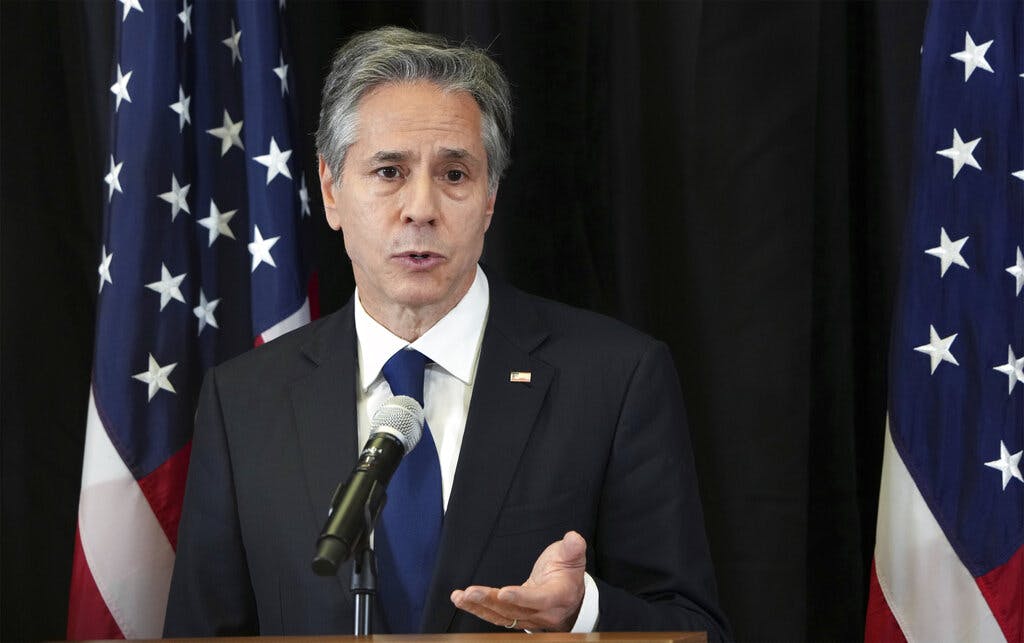Greece Hails Washington’s Lifting of Cyprus Arms Embargo, but Turkey Squawks
The groundwork for lifting the arms embargo was laid under the administration of President Trump.

Washington’s decision to lift an arms embargo it imposed on the Republic of Cyprus in 1987 triggered instant praise from Greece and Cyprus as well as a sharp rebuke from Turkey, underscoring ongoing geopolitical frictions. In material terms the decision means that America will from October 1 be fully normalizing its defense relations with the internationally recognized Republic of Cyprus. The northern third of Cyprus is illegally occupied by Turkey, which invaded the island in 1974.
The groundwork for lifting the arms embargo was laid under the administration of President Trump. In September 2020, Secretary Pompeo called the Cypriot foreign minister at the time, Nikos Christodoulides, to announce a partial lifting of the embargo.
In making the announcement on Friday, the state department spokesman, Ned Price, said in a press statement that Secretary Blinken “determined and certified to Congress that the Republic of Cyprus has met the necessary conditions under relevant legislation to allow the approval of exports, re-exports, and transfers of defense articles to the Republic of Cyprus for fiscal year 2023” and that “compliance with the conditions is assessed on an annual basis.”
In accordance with the the Eastern Mediterranean Security and Energy Partnership Act of 2019 and the National Defense Authorization Act for FY 2020, Cyprus must also continue to “cooperate with the United States government in efforts to implement reforms on anti-money laundering regulations and financial regulatory oversight,” and the government of the Republic of Cyprus must “continue to take the steps necessary to deny Russian military vessels access to ports for refueling and servicing.”
On Saturday the president of Cyprus, Nicos Anastasiades, tweeted, “This is a landmark decision, reflecting the burgeoning strategic relationship between the two countries, including in the area of security.” Greece’s foreign minister, Nikos Dendias, tweeted, “I welcome and express my particular satisfaction for the decision of the US Secretary of State Antony Blinken to completely lift the US arms embargo to Cyprus,” adding, “I believe that this decision is a political milestone for the relations between the Republic of Cyprus and the United States of America.”
The decision drew swift condemnation from Ankara. A press statement published on the Turkish foreign affairs ministry’s website on Saturday read in part that the decision “will lead to an arms race on the Island, harming peace and stability in the Eastern Mediterranean” and “we call on the U.S. to reconsider this decision and to pursue a balanced policy towards the two sides on the Island.” The more cryptic part of that statement read, “Türkiye, as guarantor country, in line with its legal and historical responsibilities, will continue to take necessary steps for the existence, security and serenity of the Turkish Cypriots, by all means.”
According to the Treaty of Guarantee promulgated in 1960 upon Cyprus’s independence from Britain, Turkey is one of the country’s three guarantor powers, along with Greece and Britain. When a junta ruling Greece in 1974 backed a coup in Cyprus with the aim of uniting it with Greece, Turkey invoked its guarantor status to invade the island. The capital, Nicosia, is the only divided capital in Europe, and UN peacekeepers monitor a buffer zone that runs the length of the island. Turkey stations an estimated 30,000 troops in the self-proclaimed Turkish Republic of Northern Cyprus.
That both Greece and Turkey are both members of NATO often takes a backseat to the jigsaw puzzle of political realities in the region, colored as they are by issues as varied as competing maritime energy rights, disputes over preservation of antiquities, and above all overlapping projections of the different regional actors’ power.
Israel is included in that mix, as is more distant Russia, largely due to the proximity of Cyprus to Syria, where Moscow maintains a naval base at Tartus. In the wake of the state department’s decision, the AFP reported that American officials “had been concerned that the ban brought Cyprus closer to Russia, with the island in 2015 signing off on an access deal to its ports.”
Moscow will probably get the memo to back off, but given Turkish intransigence on the Cyprus problem and lack of any diplomatic initiative from the Biden administration, a political reunification of the island is nowhere in sight.

